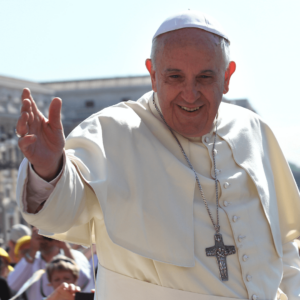23 May POPE FRANCIS’ LAST WILL AND TESTAMENT COMPARED TO THE 3 POPES BEFORE HIM
Unlike the last will and testament that one might consider in the United States, the last will and testament of Pope Francis focused on where he should be buried (Basilica of St. Mary Major in Rome) where he had prayed often. His will stated “I have always entrusted my life and episcopal ministry to the Mother of our Lord. Therefore, I ask that my mortal remains rest waiting the day of resurrection in Papal Basilica of Santa Maria Maggiore” (a basilica is a specific type of church that has been designated to have special privileges and recognized for its historical, spiritual, and architectural significance). There are 4 major basilicas (all in Rome): Basilica of Saint John Lateran (the “mother church” of Rome’s Diocese); Basilica of Saint Paul Outside the Walls (where St. Paul is buried); Saint Peter’s Basilica (where St. Peter is buried); and Basilica of Saint Mary Major (the 5th-century church dedicated to the Virgin Mary where Pope Francis now rests). Unlike other Popes, he did not want to mention “Pope” on his final resting place – just his name. The will of the “People’s Pope” requested that his tomb be simple, without ornamentation, and inscribed “Franciscus”. There was no mention of how his assets would be distributed, although it has been reported his personal account went to juvenile prisoners of Rome’s Casal del Marmo prison.

His will further state, “The suffering that has become present in the last part of my life I have offered to The Lord for peace in the world and brotherhood among people”.
The 266th Pope took the name Francis – the saint who rejected wealth. The cost of his burial was covered by a benefactor. The Pope was not paid a salary although he was entitled to one. According to some reports, the current salary for a pope is $32,000 a month. However, he decided to not take any form of wages when he became pope. If he had accepted the wages, his estate would have been worth $16 million. He donated his money to charity and others in need. However, others report that the Pope does not get a standard wage. Instead, the Vatican makes sure that the needs (housing, medical care, transportation, food, and security) are met. Similarly, Pope Leo XIV will not receive a regular salary, but he shall instead have all of his expenses covered. Funds for payment are made by the Holy See (which gets contributions, makes investments, etc.). The Vatican also gets funds from the sale of stamps, coins, and publications.
Pope Paul VI’s Will:
Most popes give any assets they may have to the church or other charitable causes upon their death. Pope Paul VI named his private secretary as his executor. He asked that his brothers bestow money or food to poor people and good causes (although they should keep some mementos from his possessions, religious books, or the Pope’s book). His personal secretary was to dispose of other assets, but he was permitted to keep some memento for himself and a small object to his best friends. He also asked that his manuscripts and handwritten notes be destroyed. He wanted his funeral to be pious and simple.
Pope John Paul II’s Will:
Pope John Paul II’s last will and testament also left instructions that his notes be burned since “the times in which we live are unutterably difficult and disturbed”. His will said he had no property to dispose of. His will further stated that his everyday objects that were of use to him be distributed as seems appropriate. Similar to Paul, he wanted his funeral to be pious and simple.
Pope Benedict XVI’s Will:
In contrast to the aforementioned popes, Pope Benedict XVI (who resigned as a result of the clerical sexual abuse scandal) had a will that left his estate to his cousins. He had earned royalties from books he wrote and salaries from being a theology professor. However, they were excluded from future book royalties and personal property items. It should be mentioned that his estate or beneficiaries could have liability as Benedict XVI was named for allegedly hiding knowledge about a German priest accused of child sex abuse. His will stated, “To all those whom I have wronged in any way, I heartily ask for forgiveness”.
Pope Francis, who was buried in a wooden casket, truly was the “People’s Pope” as he lived in simple quarters and asked that his tomb be simple. His mercy, devotion, humility, and good name shall endure forever. His memory shall be a blessing.
If interested in learning more about this article or other estate planning, Medicaid and public benefits planning, probate, etc., attend one of our free upcoming Estate Planning Essentials workshops by clicking here or calling 214-720-0102. We make it simple to attend and it is without obligation.










